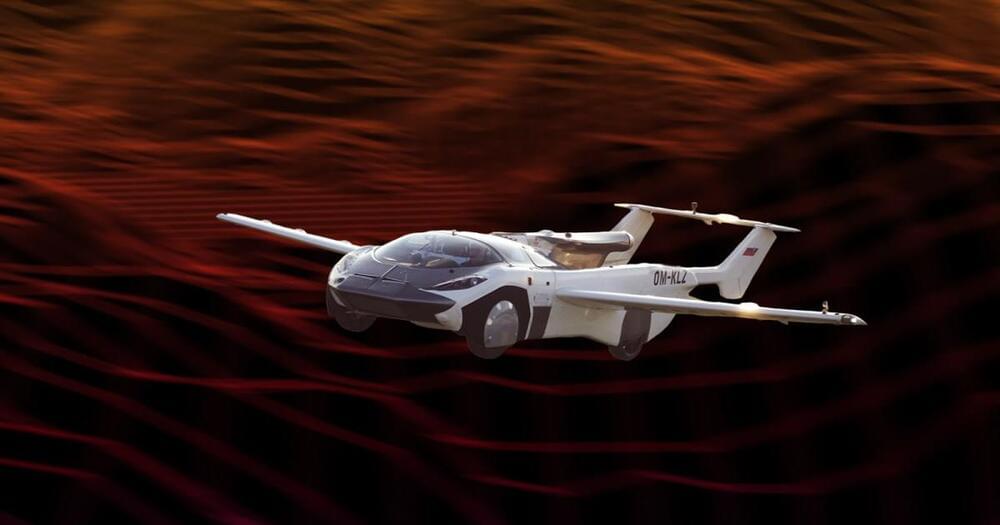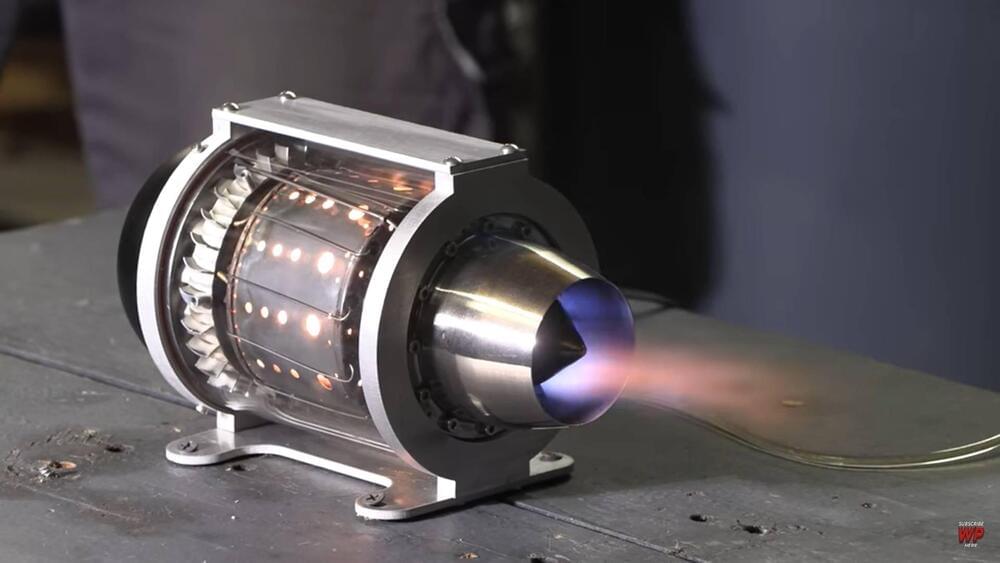Apr 5, 2023
Flying “AirCar” cleared for takeoff in the EU
Posted by Shailesh Prasad in category: transportation
The AirCar — a car-airplane hybrid vehicle with a 600+ mile range — is now officially “airworthy” in the European Union.

The AirCar — a car-airplane hybrid vehicle with a 600+ mile range — is now officially “airworthy” in the European Union.

YouTuber Warped Perception loves his jet engines. He modifies them all the time and uses them in different scenarios.
Since he is such a fan of the machines, he decided it was time to show his viewers how they work. To do that, he decided to build a see-through engine.
Tesla has launched the CyberVault, a Cybertruck-inspired box with integrated EV home charging, but it seems to be only for the Chinese market for now.
As we reported last week, Tesla was teasing the launch of a new product called CyberVault in China.
Today, the automaker fully unveiled the product, which it refers to as the “Tesla CyberVault home charging service package.”
New battery developed by researchers in US could provide ‘thousand mile’ range for EVs and open up new possibilities for long-haul transport and electric planes.
Woah, we’re halfway there. The company behind the hotly anticipated eVTOL Cavorite X5 announced it has completed construction of a 50-percent-scale prototype of its stylish flying vehicle concept.
Horizon Aircraft impressed us last year when it unveiled the Cavorite X5, with the Toronto-based company showing that the usually utilitarian world of eVTOLs could afford a little more attractive form with its function. The sleek, canard-style plane can takeoff, soar and land like a conventional aircraft, but the wings can open to reveal 16 ducted fans that provide the aircraft’s vertical lift. Once at altitude, the wing closes as it transitions to cruising. This technology would allow the aircraft to fly 98 percent of its voyage in a low-drag configuration, much like a traditional aircraft. When Horizon builds its full-scale version of the eVTOL, it will be powered by a hybrid electric system that can recharge a battery in-flight.
It can take off vertically with a lead-up (defined as the length of runway needed for take-off) of less than 300 feet, hover in austere environments, and fly forward at more than 450 miles per hour. And, by the way, it’s probably a fixed-wing plane.
That, at least, is the idea behind DARPA’s SPRINT X-plane, a project in the beginning stages of development for use by the U.S. Special Operations Command (SOCOM). The Defense Advanced Research Projects Agency recently called for proposals for a plane with a mind-bending set of capabilities. According to the March solicitation, DARPA wants a scaled demonstrator ready to fly within the next three-and-a-half years.
SPRINT, naturally, stands for “SPeed and Runway INdependent Technologies.”
This could be the end of battery fires and protect battery supply from geopolitical risks.
Researchers at Texas A&M University in the U.S. have been exploring metal-free water-based battery electrodes that could one day be used for a wide range of applications, in place of the lithium-ion batteries popular today.
Lithium-ion batteries are at the core of the electrification of transportation that countries around the world are undertaking to reduce their carbon emissions. While the U.S. has ambitious plans to go shift to this cleaner way of transportation, it is also well aware of its shortcomings in this area.
Over a dozen railcars on a Canadian National Railway train had derailed in Northern Butler County.
A spokesperson for CN says crews are responding to the incident near Slippery Rock, PA.
They say 15 railcars, all containing iron ore derailed.
Continue reading “15 cars derail in north Butler County in train incident” »
BNSF said about 22 rail cars carrying mixed freight, including ethanol and corn syrup, derailed at 1:02 a.m. local time Thursday. Four rail cars caught fire, the BNSF said. There are no other hazardous materials on the train and no injuries were reported, the company said.
“BNSF personnel are responding to assess the derailment site and will be working closely with local first responders,” company spokesperson Lena Kent said in a statement.